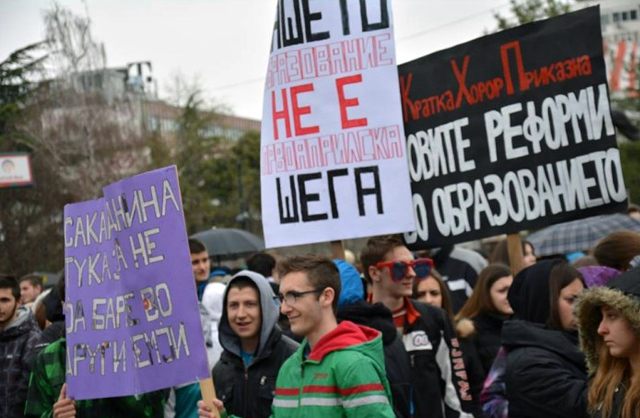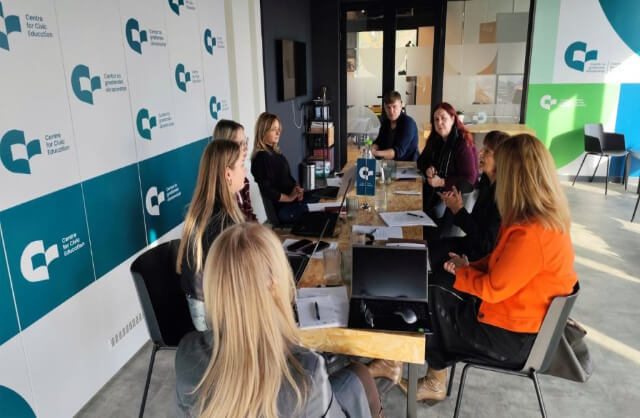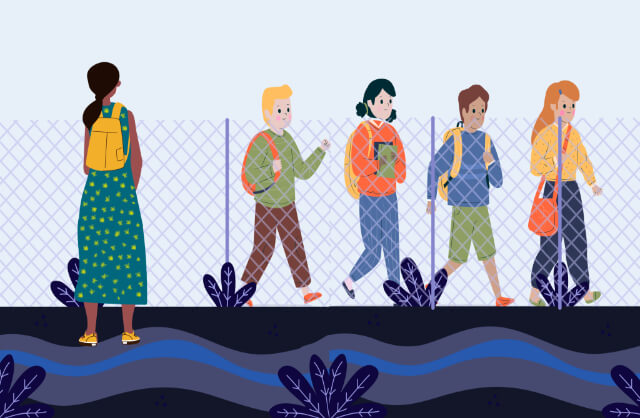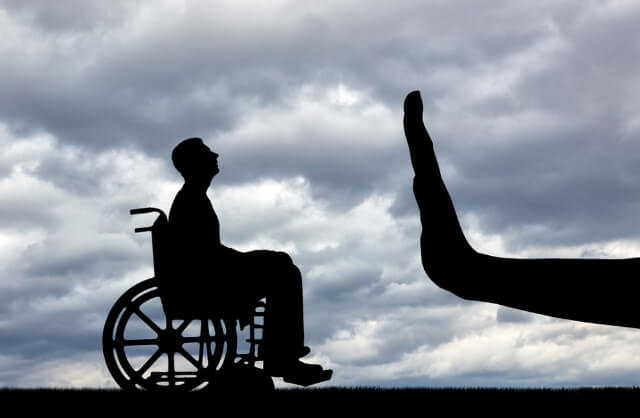The high school students right to protest endangered once again
April 14, 2015

The Helsinki Committee yesterday received notifications with allegations of threats against some of the high school students who participated in yesterday’s protest march against the unfavorable reforms of the educational system. The allegations were submitted by students, but also by parents. Especially worrisome are the allegations according to which some students were locked up in their schools by official persons, who secured the high school classrooms and doors.
The Helsinki Committee reminds that such acts of exerting pressure on the high school students are in collision with the Constitution of the Republic of Macedonia, but also with all international standards for protection of the right to freedom of association, expression and peaceful protest. Indeed, the Constitution of the Republic of Macedonia guarantees the right of the citizens, including children, to peacefully assemble and protest publicly. The exercise of this right may be limited only in cases of state of war or state of emergency. In the Convention on the Rights of the Child, which has been ratified by the Republic of Macedonia, and now exists as a part of our legal frame, this right is guaranteed in Article 15, where it is stated that the member states recognize the child’s right to freedom of association and freedom of peaceful gathering. When it comes to exercising this right, no limitations may be imposed upon it, except those which are in accord with the law, and which are indispensable for a democratic society’s interests regarding national safety or public security, public order, protection of public health or moral, or protection of the rights and freedoms of the others.
The states have positive obligation to protect this right of the children and to educate the civil and public servants, as well as the police officers, on the children’s right to protest, so that this right may be more easily exercised. The state’s positive obligation to provide special protection for children who participate in protests is also visible through the practice of the European Court of Human Rights. In the case Castle and Others v. Great Britain, the European Court of Human Rights ascertains the children’s right to participate in protests, emphasizing that they should be considered as vulnerable group, and therefore the state, and especially the police officers, should provide them with special protection while they practice this right. Moreover, locking up children is schools so that they would not be able to take part in protest march is nothing but a case of illicit deprivation of liberty, which is forbidden by the Criminal Code of the Republic of Macedonia. In Article 140, Paragraph 3 of the Criminal Code it is stated: “If the unlawful arrest is performed by an official person, by misusing the official position or authorization, he shall be punished with imprisonment of six months to five years.” This Article provides firm ground for the Public Prosecution to initiate procedure relying on hearsay, and to investigate the information regarding the high school students’ illicit deprivation of liberty. Such restriction of freedom of movement also curtails the children’s right to protest and right to express their views concerning a process which has direct bearing on them, as the educational process indeed does have. While making decisions, the competent institutions have to take in consideration the high school students’ stance as well.
Especially worrisome is the fact that certain media reported that the high school students had been receiving financial compensation in exchange for their willingness to participate in the protest, as well as that today graffiti with similar content were found in vicinity of two High Schools. With this the honor and reputation of the children who want to express their dissatisfaction with the educational reforms is being violated.
Due to the fact that some official persons employed in certain High Schools with their actions caused direct deprivation of liberty and obstruction of the right to public gathering, as well as that some media violated the honor and reputation of some children, but also of the High School Students’ Plenum, we want to underline that the Helsinki Committee retains the right to provide legal assistance to all persons whose rights are going to be violated or restricted due to their participation in the protests of the high school students, and who are willing to initiate appropriate procedures for protection of their rights.


